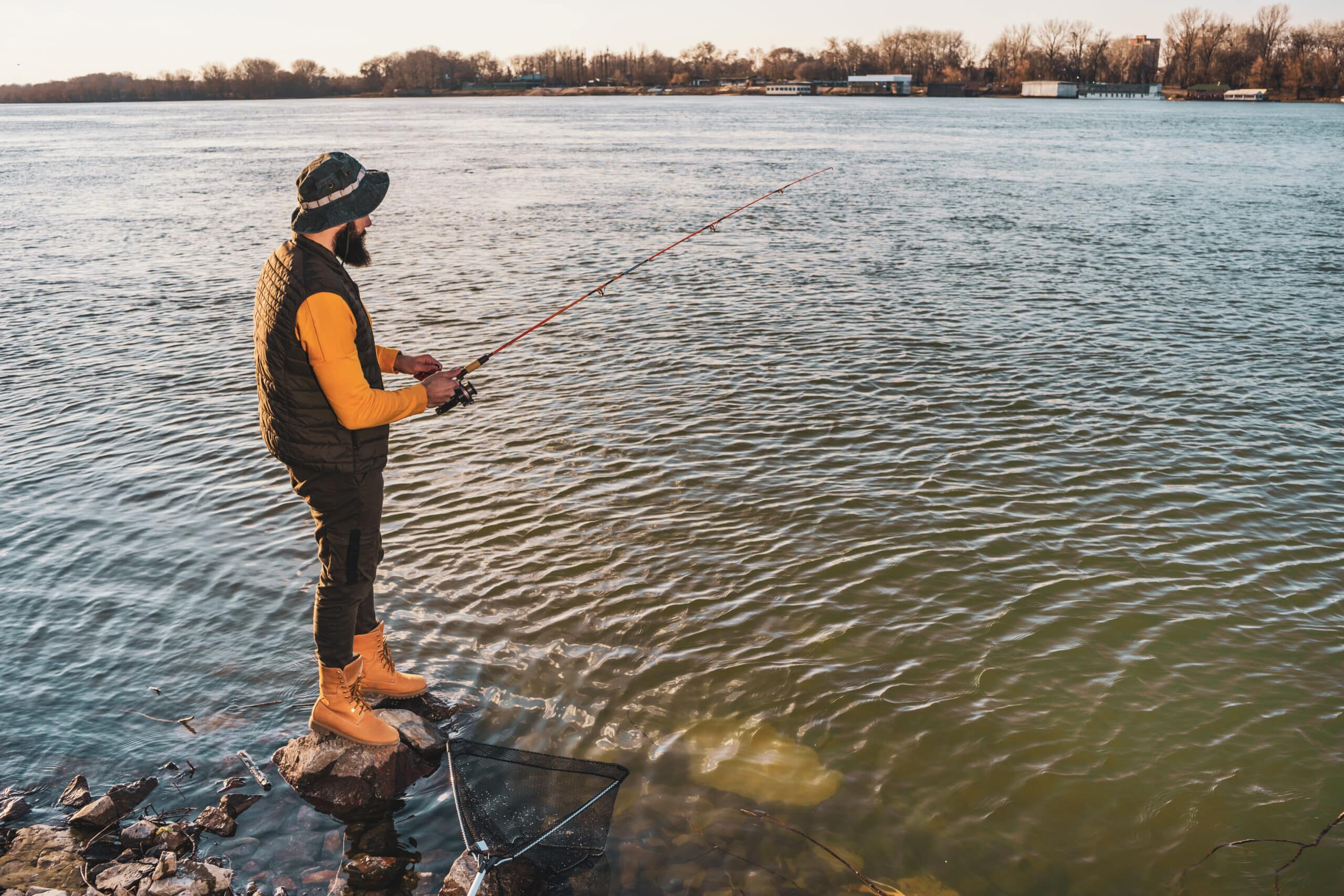What Weather is Worst for Fishing?
Key Takeaways
- Heavy rain and storms can negatively impact fishing by reducing water visibility and increasing the risk of lightning.
- Extreme temperatures, whether hot or cold, can make fishing challenging as fish may seek shelter or become lethargic.
- High winds can make casting and controlling fishing lines difficult, as well as displace baitfish from the fishing area.
When it comes to fishing, weather conditions play a crucial role in determining the success of a fishing trip. While certain weather conditions can enhance the fishing experience, others can make it challenging and less productive. So, what weather is worst for fishing? Let’s explore the factors that can make fishing difficult and less enjoyable.
1. Heavy Rain and Storms
One of the weather conditions that can significantly impact fishing is heavy rain and storms. While some rain can be beneficial for fishing, excessive rainfall can have negative effects. Heavy rain can stir up silt, sand, and mud, making the water murky and reducing visibility. This can make it difficult for fish to spot bait and lures, leading to a decrease in bites.
Moreover, fishing during a rainstorm can be dangerous due to the risk of lightning. Wet and slippery surfaces can increase the risk of slips or falls. Safety should always be a priority, and it is advisable to avoid fishing in severe storms.
2. Extremely Hot or Cold Temperatures
Extreme temperatures, whether too hot or too cold, can also make fishing challenging. In very hot weather, fish tend to seek shelter in deeper, cooler waters, making them less likely to actively feed. On the other hand, in extremely cold temperatures, fish may become lethargic and less active, reducing their feeding behavior.
It is important to note that different fish species have different temperature preferences. Some fish thrive in warmer waters, while others prefer cooler temperatures. Therefore, understanding the temperature preferences of the target species is essential for a successful fishing trip.
3. High Winds
While a gentle breeze can be beneficial for fishing, high winds can make it difficult to cast and control your fishing line. Strong winds can create choppy water conditions, making it challenging to maintain bait or lures in the desired area. It can also make it harder to detect bites and feel the subtle movements of the fish.
Additionally, when the wind is blowing towards the shore, it can push baitfish away from the fishing area, leading to fewer opportunities for catching fish. Therefore, fishing in extremely windy conditions may not yield the best results.
4. Poor Water Clarity
Water clarity is another crucial factor that affects fishing. Dirty or murky water can reduce visibility, making it harder for fish to spot and strike at bait or lures. Heavy rain, as mentioned earlier, can stir up sediments and decrease water clarity. Similarly, excessive algae blooms or pollution can also impair water clarity and make fishing more challenging.
5. Unfavorable Water Conditions
Aside from weather-related factors, other water conditions can also impact fishing negatively. For example, excessive current or strong tidal movements can make it difficult to present bait or lures effectively. Similarly, extremely high or low water levels can displace fish from their usual feeding areas, making them harder to locate.
It is important to pay attention to these water conditions and adjust your fishing techniques accordingly to maximize your chances of success.
Conclusion
While fishing can be an enjoyable and rewarding activity, certain weather conditions can make it challenging and less productive. Heavy rain and storms, extremely hot or cold temperatures, high winds, poor water clarity, and unfavorable water conditions are some of the factors that can make fishing more difficult. It is essential to consider these factors and plan your fishing trips accordingly to increase your chances of success.
Related Websites:
- Do Fish Bite Better in the Rain? Exploring the Impact of Rainy Weather on Fishing
- Offshore Wind Power Projects and Their Impacts on Fish and Marine Mammals
- Examining the Impacts of Offshore Wind on Fisheries and Commercial Fishermen
- Protecting Marine Life in Offshore Wind Energy Development
- Unlocking the Secrets of Perfect Fishing Weather: Best Conditions for a Great Catch
FAQs:
Q: How does weather impact fishing success?
Weather plays a crucial role in fishing outcomes. Understanding different weather conditions is important as it affects fish behavior, feeding patterns, and movement. By adapting your fishing strategies based on prevailing weather conditions, you can improve your chances of success.
Q: What are the effects of fishing in sunny conditions?
Fishing in sunny conditions has both pros and cons. The sunlight can make it easier to spot fish and improve visibility. However, it can also make fish more cautious and seek shelter in deeper waters. Understanding how sunlight affects fish behavior and feeding patterns can help you adjust your tactics accordingly for better results.
Q: Is fishing during rainy weather beneficial?
Fishing during rainy weather can have its benefits. Rainfall can create a feeding frenzy as it washes insects and small creatures into the water, attracting fish. However, heavy rain can also muddy the water and make fishing more challenging. It’s important to consider the potential benefits and drawbacks before fishing in the rain.
Q: How does wind affect fishing?
Windy conditions can significantly impact fishing. Wind influences fish movement by creating currents and waves. It can push baitfish closer to shore, attracting predatory fish. On the other hand, strong winds can make casting and boat control more difficult. Understanding how wind influences fish behavior and feeding habits can help you make informed decisions while fishing.
Q: What challenges arise when fishing in cold weather?
Fishing in cold weather poses several challenges. Freezing temperatures can slow fish metabolism, making them less active and reducing their feeding habits. Additionally, ice formation may limit access to fishing spots. It’s important to consider these challenges and adjust your approach to maximize success when fishing in cold weather.






